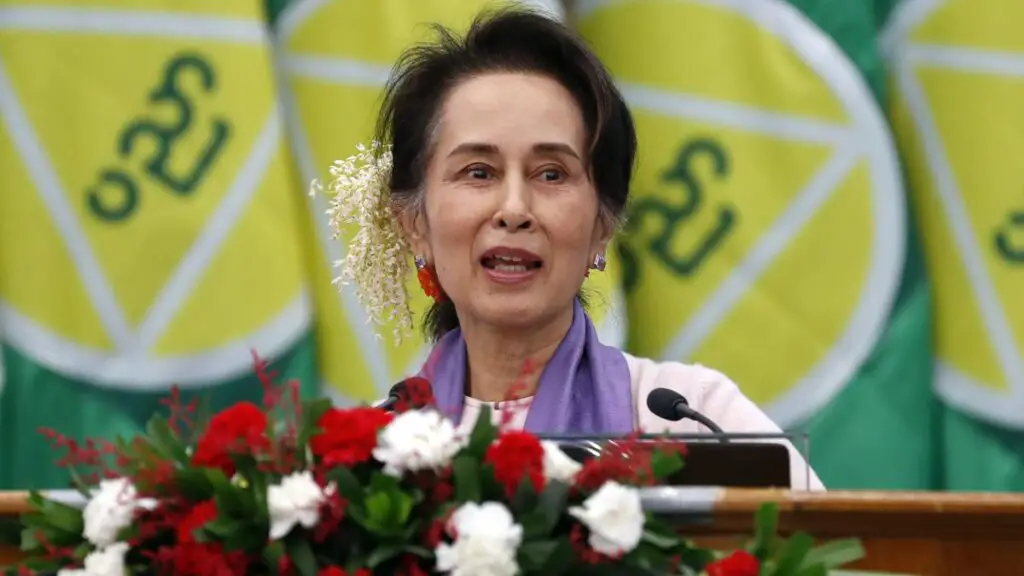The Supreme Court in Myanmar Rejects Aung San Suu Kyi’s Appeals Against Corruption Convictions
The Supreme Court in military-ruled Myanmar has dismissed the appeals filed by Aung San Suu Kyi against six corruption convictions, as reported by various media outlets. The former leader of Myanmar has been detained since the military coup in 2021 and now faces a total of 27 years in prison for multiple crimes including treason, bribery, and violations of the telecommunications law.
Incarcerated Nobel Peace Prize Laureate’s Struggle for Justice
Aung San Suu Kyi, a Nobel Peace Prize laureate, has consistently denied any wrongdoing in relation to the charges brought against her. However, the military junta ruling Myanmar has pursued a relentless crackdown on opponents, leading to widespread turmoil and thousands of people being jailed or killed. International pressure has been mounting on the Myanmar government to release Suu Kyi and other political prisoners.
Since her arrest, Aung San Suu Kyi has lodged appeals against numerous convictions. However, the Supreme Court has rejected these appeals, further prolonging her legal battle. In August, the court dismissed five appeals related to charges of illegally importing and possessing walkie-talkies, sedition, and violating coronavirus restrictions.
Calls for Suu Kyi’s Release Intensify
The international community has united in demanding the unconditional release of Aung San Suu Kyi and the release of thousands of other political prisoners held unlawfully in Myanmar. Governments from around the world have condemned the military coup and the subsequent human rights abuses carried out by the junta.
Despite numerous calls for her freedom, a spokesperson for the junta opted not to comment on the Supreme Court’s recent decisions regarding Suu Kyi’s appeals.
The Fight for Democracy in Myanmar
Myanmar, a Southeast Asian country once heralded for its remarkable transition towards democracy, now finds itself trapped in a state of political turmoil. The military coup in 2021 thrust the nation into a state of authoritarian rule, with the junta exercising control over the government and implementing oppressive measures.
Aung San Suu Kyi, whose National League for Democracy (NLD) party won a landslide victory in the 2020 elections, was overthrown by the military. Since then, the people of Myanmar have faced relentless persecution and a steady erosion of their democratic rights.
Aung San Suu Kyi’s Leadership Challenged
Aung San Suu Kyi’s leadership has long been contested, both within Myanmar and internationally. Critics argue that her government failed to address the systematic discrimination and violence faced by the Rohingya Muslim minority. However, others see Suu Kyi’s imprisonment as a grave injustice, fearing that it marks the end of democracy in Myanmar.
Myanmar’s military rulers have justified their actions as necessary to preserve stability and unity within the country. However, these claims have been met with widespread condemnation and allegations of human rights abuses.
An Uncertain Future for Myanmar
The recent partial pardon granted to Aung San Suu Kyi, reducing her sentence by six years, has been dismissed as a meaningless gesture by critics, including her own son. It remains uncertain how Myanmar’s political landscape will evolve in the coming months.
As the country grapples with its uncertain future, the international community must continue to exert pressure on the military regime, demanding the restoration of democracy and the release of all political prisoners. It is crucial to support the aspirations of the people of Myanmar as they strive for freedom, justice, and human rights.

